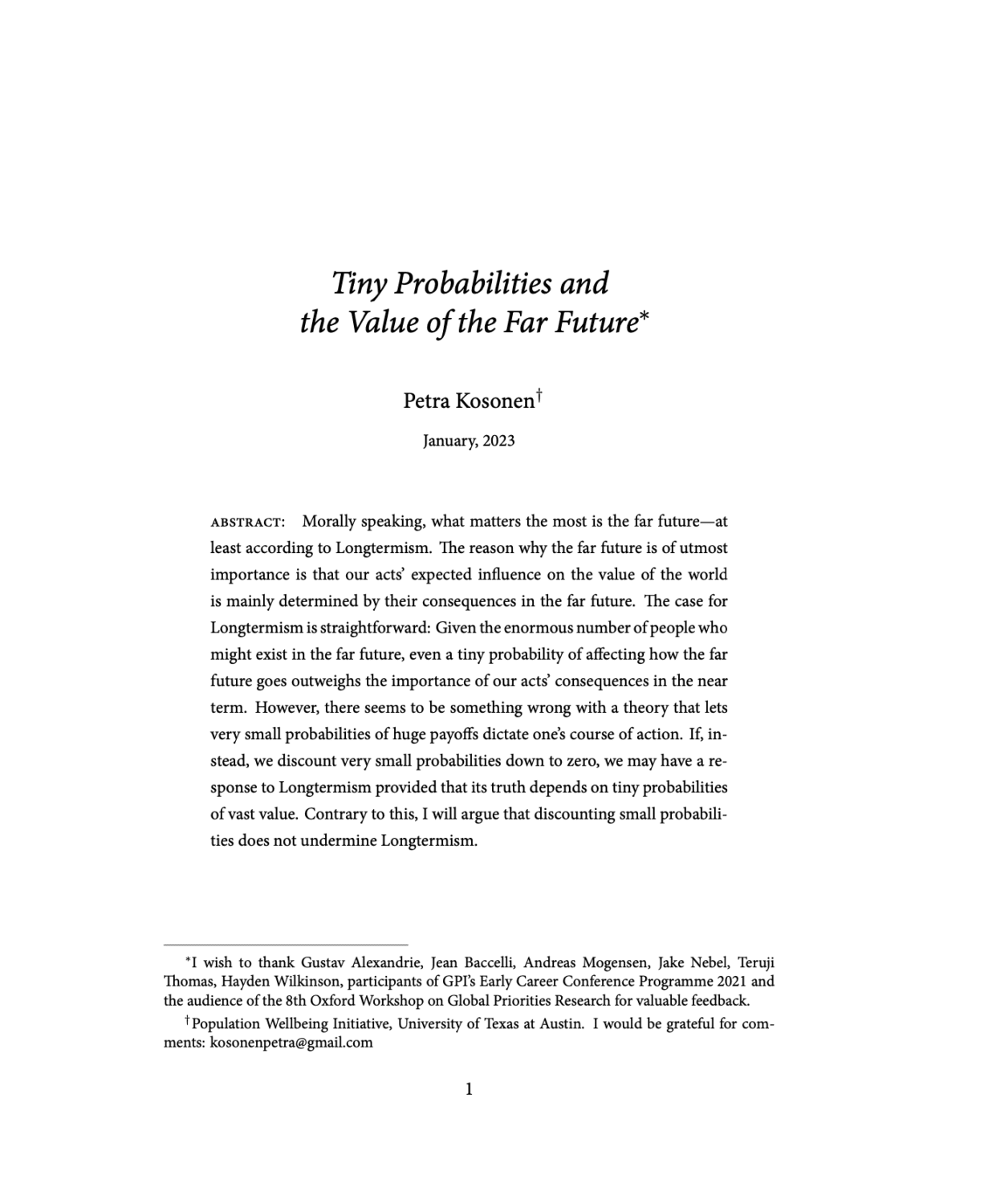Tiny probabilities and the value of the far future
Petra Kosonen (Population Wellbeing Initiative, University of Texas at Austin)
GPI Working Paper No. 1-2023
Morally speaking, what matters the most is the far future - at least according to Longtermism. The reason why the far future is of utmost importance is that our acts' expected influence on the value of the world is mainly determined by their consequences in the far future. The case for Longtermism is straightforward: Given the enormous number of people who might exist in the far future, even a tiny probability of affecting how the far future goes outweighs the importance of our acts' consequences in the near term. However, there seems to be something wrong with a theory that lets very small probabilities of huge payoffs dictate one's own course of action. If, instead, we discount very small probabilities to zero, we may have a response to Longtermism provided that its truth depends on tiny probabilities of vast value. Contrary to this, I will argue that discounting small probabilities does not undermine Longtermism.
Other working papers
The evidentialist’s wager – William MacAskill, Aron Vallinder (Global Priorities Institute, Oxford University) Caspar Österheld (Duke University), Carl Shulman (Future of Humanity Institute, Oxford University), Johannes Treutlein (TU Berlin)
Suppose that an altruistic and morally motivated agent who is uncertain between evidential decision theory (EDT) and causal decision theory (CDT) finds herself in a situation in which the two theories give conflicting verdicts. We argue that even if she has significantly higher credence in CDT, she should nevertheless act …
The paralysis argument – William MacAskill, Andreas Mogensen (Global Priorities Institute, Oxford University)
Given plausible assumptions about the long-run impact of our everyday actions, we show that standard non-consequentialist constraints on doing harm entail that we should try to do as little as possible in our lives. We call this the Paralysis Argument. After laying out the argument, we consider and respond to…
Existential risks from a Thomist Christian perspective – Stefan Riedener (University of Zurich)
Let’s say with Nick Bostrom that an ‘existential risk’ (or ‘x-risk’) is a risk that ‘threatens the premature extinction of Earth-originating intelligent life or the permanent and drastic destruction of its potential for desirable future development’ (2013, 15). There are a number of such risks: nuclear wars, developments in biotechnology or artificial intelligence, climate change, pandemics, supervolcanos, asteroids, and so on (see e.g. Bostrom and Ćirković 2008). …

